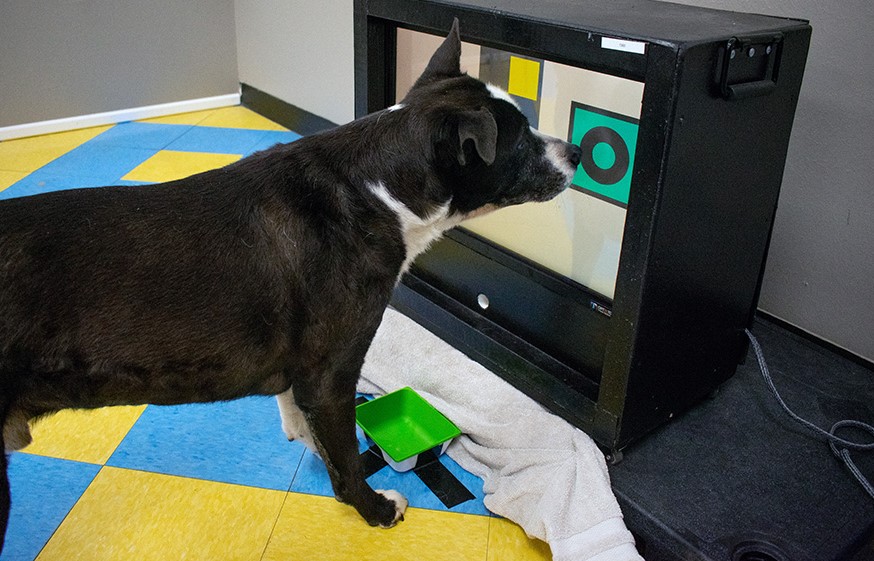Dogs are known for their incredible loyalty, companionship, and unconditional love. But have you ever wondered about their cognitive abilities? In this article, we will delve into the world of canine intelligence and address the question: Can a dog be retarded? We will explore various aspects of canine cognition, helping you understand your furry friend better.

Canine Intelligence: An Overview
Understanding canine intelligence requires us to look beyond traditional IQ tests, as dogs have unique ways of showing their cognitive abilities. Here’s a closer look at different aspects of their intelligence.
Problem-Solving Skills
Dogs exhibit remarkable problem-solving skills. They can figure out how to open doors, fetch objects, and even hide their treats. This kind of intelligence is an indicator of their adaptability.

Social Intelligence
Dogs are known for their social intelligence. They can understand human emotions, and body language, and anticipate our needs. This ability makes them perfect companions and service animals.
Learning and Memory
Dogs have a good grasp of learning and memory. They can remember commands, tricks, and even the locations of their favorite toys. This memory retention is a testament to their cognitive abilities.

Sensory Perception
A dog’s senses, such as smell and hearing, are highly developed. They can detect scents, sounds, and even changes in the environment that are imperceptible to humans. This heightened sensory perception showcases their intelligence.
Signs of Cognitive Issues
Now, let’s address what many pet owners ask: Can a dog be retarded? While the term “retarded” isn’t commonly used in veterinary medicine, there are signs that may indicate cognitive issues in dogs.
Memory Loss
If your dog forgets familiar commands or gets disoriented in well-known surroundings, it could be a sign of cognitive dysfunction.

Disorientation
Dogs with cognitive issues might seem confused or disoriented. They might wander or have difficulty recognizing their owners.
Changes in Behavior
Sudden changes in behavior, such as increased aggression or anxiety, could be related to cognitive problems.
Loss of House Training
If a previously well-trained dog starts having accidents indoors, it might be indicative of cognitive decline.

Reduced Interaction
Dogs with cognitive issues may become withdrawn and less interactive with their owners.
Understanding Cognitive Dysfunction in Dogs
Rather than using the term “retarded,” it is more accurate to refer to cognitive problems in dogs as “cognitive impairment syndrome” (CDS). CDS is a condition that affects aging dogs and can resemble dementia in humans.
CDS can impact a dog’s memory, perception, and ability to learn. While not all aging dogs will develop CDS, it’s essential to be aware of the signs and seek veterinary guidance if needed.
Seeking Professional Help
If you notice any signs of cognitive impairment in your dog, it is important to consult a veterinarian. They can make a thorough diagnosis and offer guidance on how to manage the condition. Treatment may include dietary changes, cognitive stimulation activities, and in some cases, medications.
Canine Cognitive Training
Just like humans, dogs can benefit from cognitive training. This type of training can help maintain and even improve their cognitive abilities, reducing the risk of cognitive impairment. Simple tasks and puzzles can be both mentally stimulating and fun for your furry friend.

Conclusion
Finally, dogs are intelligent creatures, each with their unique strengths and weaknesses. Although the term “permanent” is not commonly used in veterinary practice, cognitive problems in dogs are a reality. Understanding these problems, and their symptoms, and seeking professional help when needed can ensure that your dog enjoys the best possible quality of life.
Resources & References
For further information on canine cognitive abilities and cognitive dysfunction in dogs, you may find the following resources useful:
Recommended Articles
Recommended Video
To supplement your knowledge, consider watching this YouTube video titled “How to notice if your dog is RETARDED.” The video provides additional insights into canine cognitive abilities, helping you better understand your furry companion.
FAQs – Can a Dog Be Retarded
Can dogs have learning disabilities?
Yes, dogs can have learning disabilities.
Can a dog be autistic?
Yes, dogs can be autistic.
Can dogs have autism signs?
Yes, dogs can have autism signs.
How can I tell if my dog is special needs?
If you are concerned that your dog may have special needs, it is important to talk to your veterinarian.
Can dogs have ADHD?
Yes, dogs can have ADHD.







